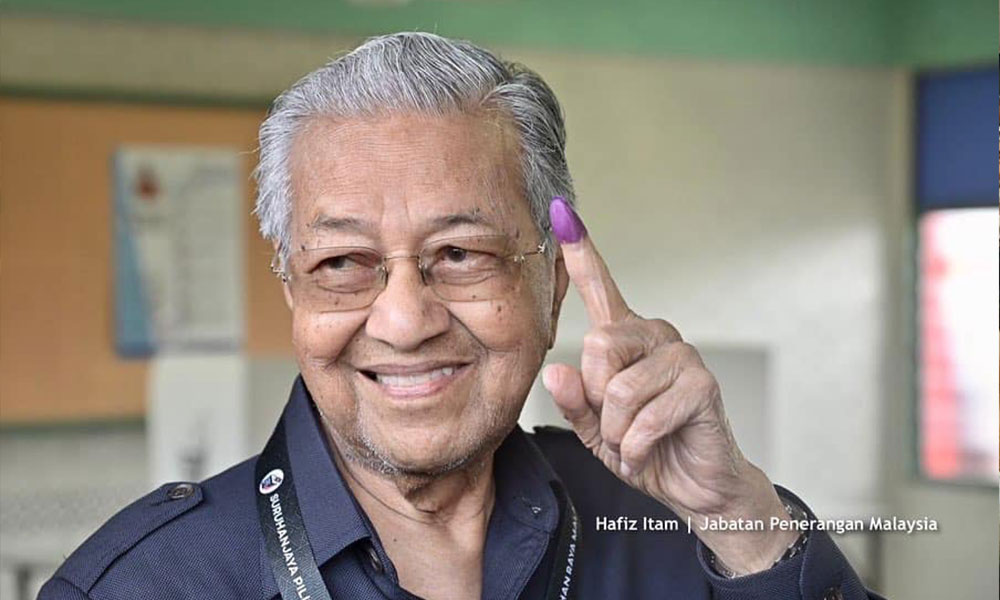When one looks back on 2022, most will put their attention on the 15th general election (GE15) in November. Indeed, there have been and will be many analyses of these polls. In this reflection on the year, the focus is better placed on the processes of change rather than their outcomes.
Malaysia is undergoing profound transformations - an uneven economic recovery, widening social divisions, devastating implications of climate change, rapid use (and misuse) of new technology, and yet another government with “frenemies” political alliances.
Arguably, over the past year, there has been a bombardment of “new” while the “old” continues to constrain parameters to resolve challenges.
The year 2022 was a difficult year for many, with rising cost of living, persistent manmade (and ignored) climate change disasters and tragedies, social divides exacerbated by Covid-19 and political ambitions, and consistent calls for better governance in both the Johor polls and GE15 that remain largely (as yet) unanswered.
At the year’s end, there is promise and potential for change, but cynicism and fear of disappointment reduce expectations and dampen hope. Not least of all is the reality that old forces remain in political power, despite the overwhelming call for change.
A new beginning?
While Anwar Ibrahim’s supporters welcome the overdue opportunity to stamp his leadership brand on Malaysia, others are more cautious; there is the worry that he will return to practices while he was first in office where he became part of the patronage system and led the Islamisation drive of the country.
Yet others are concerned about the strength of the forces who oppose his call for reform and steps that might be taken to undercut any push for change. Some see Anwar’s put-me-in-power alliance with Umno as a betrayal of years of pushing against the status quo.

As “reformasi” has been long tied to Anwar’s post-1998 persona, it ironically puts meaningful reform at risk. Any lost opportunities to reform while Anwar is in power may stymie needed fundamental reforms further. Two decades after reformasi has begun, there is now a window to fulfil these promises.
While former prime minister Dr Mahathir Mohamad will continue to make noise, his real power has gone. 2022 marked a sad end to Mahathir’s personal national leadership role, one that ended with a loss of his election deposit and a clear rejection of his party. There was no third-time lucky, as Malaysians of today are not as forgiving (or forgetful) as those of earlier years.
Children of Mahathir’s generation
It is now for those leaders Mahathir initially empowered, (then imprisoned and criticised) to address the problems of Mahathirism, to correct the errors of his tenure: corruption, the concentration of personal power, weakened political institutions, and embedded racialised politics.
It is the children of Mahathir’s generation, those who experienced his second prime ministership, that have assured that Malaysia moves in a different direction.
This same group of people, children of Mahathir’s generations, now Malaysians under 30, have been on the frontline of a society shaken by political instability, uncertainty, economic contractions, and sharpened political polarisation. Covid-19 has both coincided with and reinforced this extremely challenging period.

A political tilt to the right should not have been unexpected, especially one that was well-funded and used the effective tools of misinformation and mobilisation of discontent (along racialised lines). The call for change is clear, especially among the young.
Too few measures have (as yet) been focused on addressing the concerns of youth; these are not just the critical issues (and gaps) of jobs, wages, and education, but also instilling a sense of promise, a pathway for dreams to be fulfilled.
Desire for more
While Perikatan Nasional has emerged as Malaysia’s strongest new political force this year, the underlying reasons for the opposition’s gains (especially among the young) were two-fold: a rejection of the past (which Umno represented through Ahmad Zahid Hamidi’s leadership and arguably Pakatan Harapan did as well as its first tenure in office 2018-20 marked a turning point in political instability) and a call for a better, more secure future.
The past two elections in Malaysia since 2018 have shared the latter features, a yearning for a better Malaysia for Malaysians. This desire is stronger than ever, and voters are willing to take risks in opting for alternatives to achieve it.
The time for extended political loyalty to the same political party has ended, not coincidentally as Mahathir’s own prominent political role has faded.
The year 2022 showed that Malaysia’s transitions are not easy, but this shared societal yearning provides a compass, one that is pushing for better positioning of the country.
While it is easy to feel lost, there are good reasons to remain confident, not least of which is the reality that shortcomings in delivery will yield further pressures for better governance. - Mkini
BRIDGET WELSH is an honorary research associate of the University of Nottingham, Malaysia’s Asia Research Institute (Unari). She is also a senior research associate at the Hu Fu Centre for East Asia Democratic Studies and a senior associate fellow of The Habibie Centre. Her writings can be found at bridgetwelsh.com. Check out her Kerusi Panas podcast series.
The views expressed here are those of the author/contributor and do not necessarily represent the views of MMKtT.



No comments:
Post a Comment
Note: Only a member of this blog may post a comment.